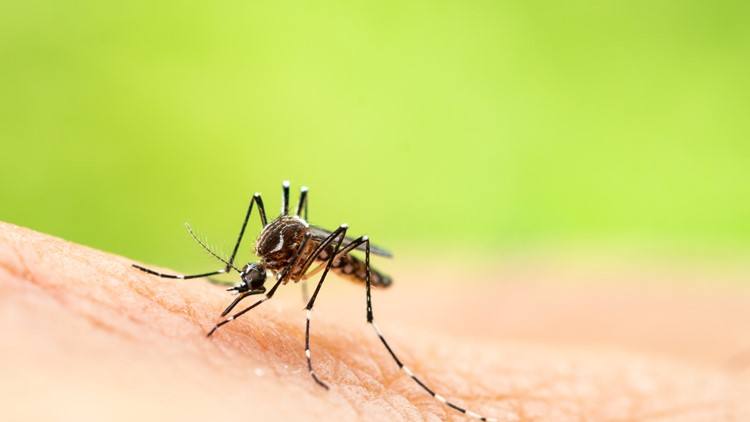ST. PETERSBURG, Fla. — The Tampa Bay region has a mosquito problem, and that probably comes as no surprise. After recent heavy rains, it might be as bad as it's been all year.
It's the constant buzzing, swatting and bites: According to Pests.org, mosquito season almost is a year-round phenomenon in Florida but usually runs from February to November. Come June or so and aligning with the summer rains, peak season is in full swing.
While the state's lakes and ponds are breeding grounds, a lot of the mosquitoes flying about right now are those of the container variety, one expert said. Think of those buckets and trays in the backyard, a piece of trash behind a hedge or even something as tiny as a bottle cap.
"Something that small easily can hold 20 to 30 larvae," David Nott said. He's the certified operator and manager of Mosquito Joe of Tampa Bay, and they've been busy lately. "The free newspapers that get thrown in the yard and the plastic that holds them -- those can harbor literally hundreds of them."
It might seem impossible to get a handle on the problem. It has rained every day for the past 12 days in Tampa, per weather service data, and that's a lot of water to manage.
Nott says it's key, though, to check out the yard as often as possible and dump out any sort of standing water, no matter how little. When it's a larger body of water, check with your county to see what sort of mitigation solution they have available.
- Hillsborough County, for example, has several mosquito-eating fish giveaways through the end of September. Residents also can submit reports to the county for officials to determine where and how to spray pesticides.
- Pinellas County offers a similar request form on its site to tackle problems in specific neighborhoods.
- And in Pasco County, residents can see the latest virus reports and also place requests for service.
The "end" of Florida's mosquito season doesn't last long, Nott said. Temperatures need to fall below 50 degrees and stay there for some time to knock out any sort of habitat.
Prevention can go a long way, but it's not foolproof: Wear light-colored clothing, apply bug spray and work around the yard to get rid of anything that can hold water, Nott said.
"Those that we're dealing with now are daytime biters; they will peak in the evenings and mornings but really will bite all day long," he added. "The nighttime biters are usually ones that come from the ponds and lakes."
What other people are reading right now:
- Florida man accused of refusing to pay for chicken wings, exposing himself in restaurant
- Couple arrested after police say 5-year-old was left at bus stop, found near busy street
- Jimmy Buffett fan club members reportedly get sick at Dominican Republic resort
- Pastor who backed bill criminalizing abortions accused of repeatedly molesting a child
- Man arrested after 3 thrown from elevated expressway after being struck by car
►Make it easy to keep up-to-date with more stories like this. Download the 10News app now.
Have a news tip? Email desk@wtsp.com, or visit our Facebook page or Twitter feed.



